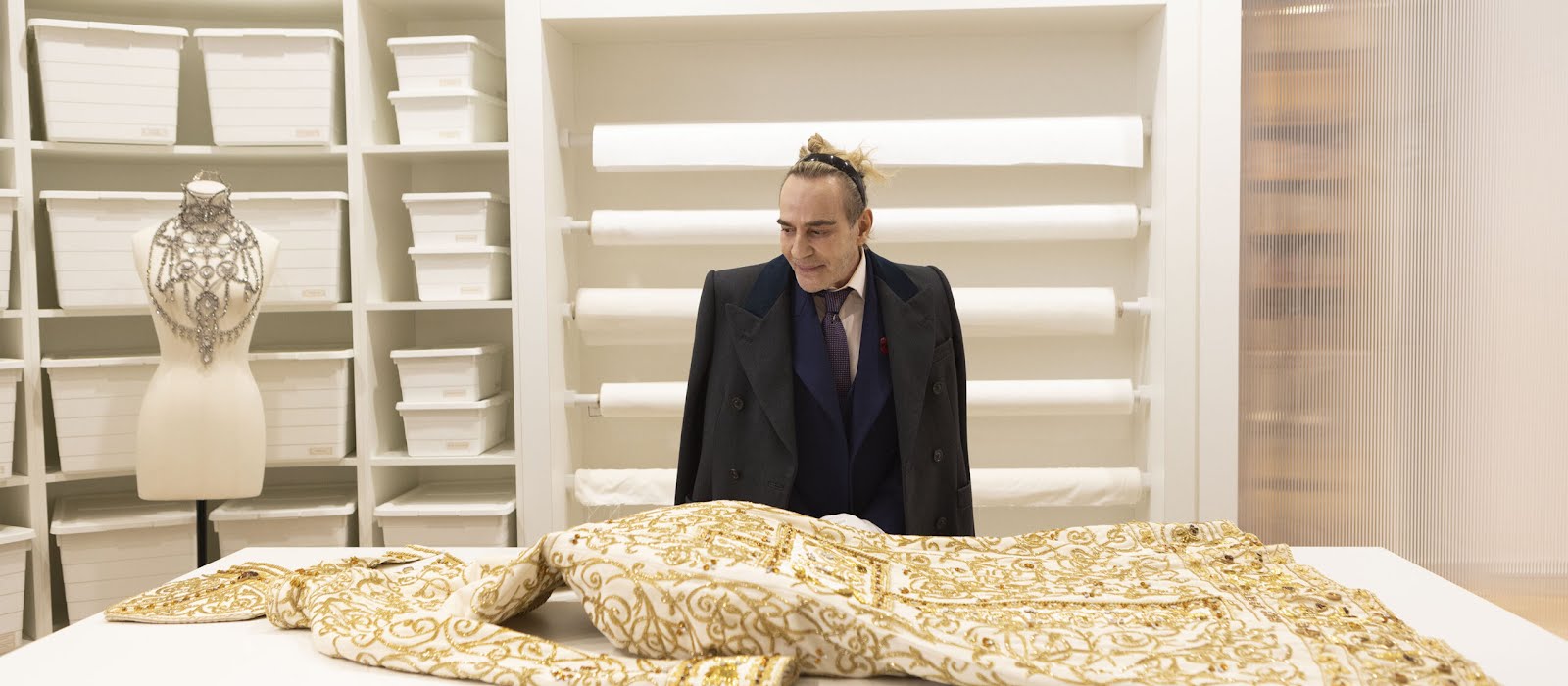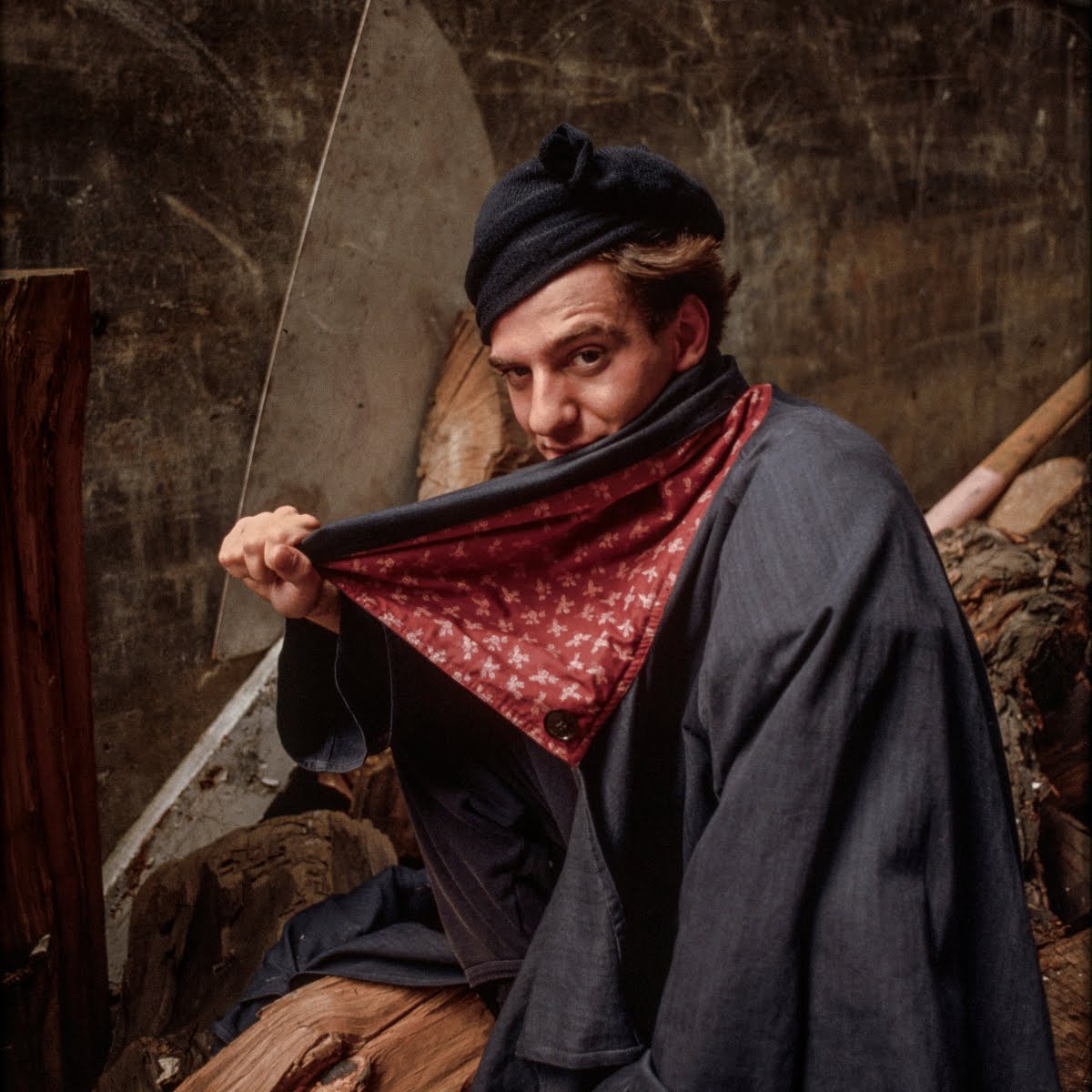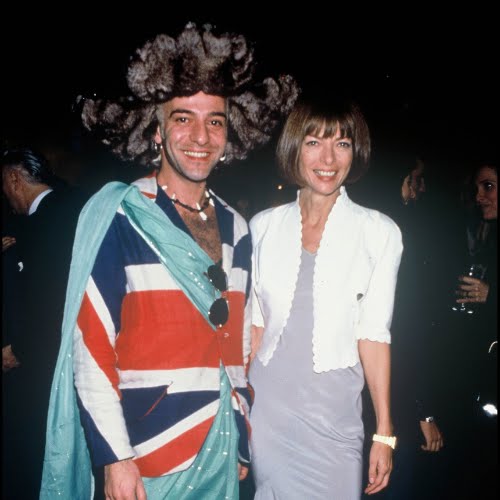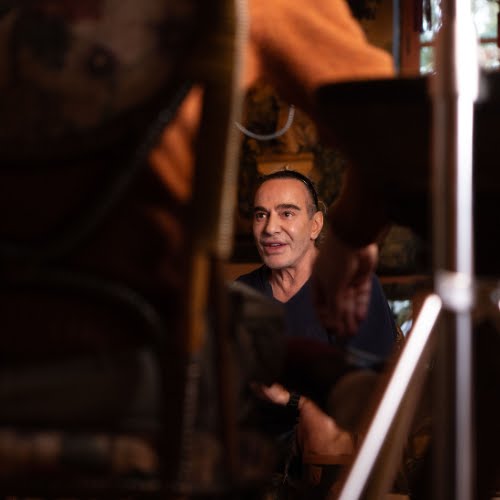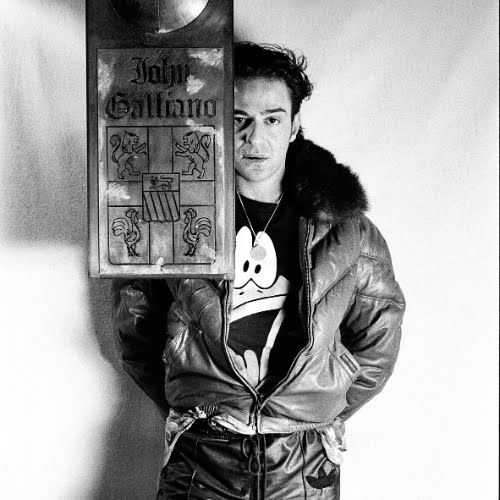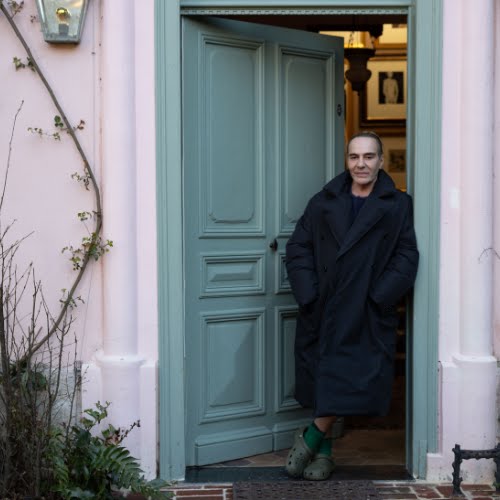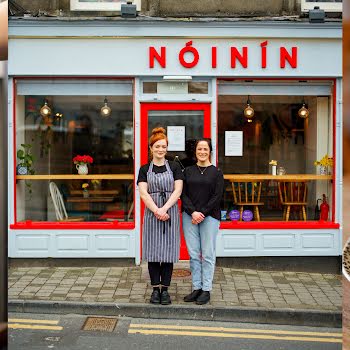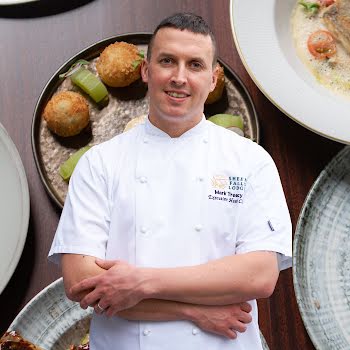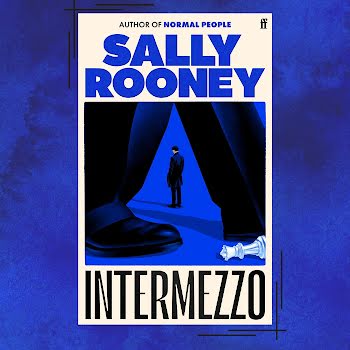Fashion, cancel culture, antisemitism – the new John Galliano documentary explores it all
A new documentary from Academy Award-winning filmmaker Kevin Macdonald, High & Low – John Galliano charts the rise and fall of one of Britain’s most successful (and controversial) high fashion designers.
For many sartorial savants, John Galliano is what fuelled their love of fashion in the first place. One of the most widely recognisable and successful designers of the 1900s/2000s, his shows were (and continue to be) absolute works of art.
Born Juan Carlos Galliano, he grew up in Gibraltar with his English mother, Spanish father and two sisters. Moving to London when he was six years old, it’s there that his creative spirit really flourished – particularly at Saint Martin’s College of Arts and Design where his final year showcase caused quite a stir.
Inspired by the French Revolution, the collection was entitled Les Incroyables and featured numerous gender-fluid pieces characterised by exaggerated silhouettes – it was, as John put it, a reimagining of the London-based New Romantics he was beginning to see everywhere at that time. Garnering nationwide attention for his talent, the collection was bought in its entirety to be re-sold at the London fashion boutique Browns. In 1989, Galliano had his first show at Paris Fashion Week. Six years later, he was appointed head designer of Givenchy, thus becoming the first British designer to head up a French haute couture house in over 100 years. Just over one year later, he took over as Creative Director at Christian Dior where he worked for 15 years.
However, while his professional career continued to flourish, behind the scenes, John was struggling. Deep in the throes of addiction, his problems were exacerbated by the grief of losing his close friend and colleague Steven Robinson – all of which culminated in a spectacular downfall. In 2011, his career abruptly ended when he was caught on camera hurling antisemitic and racist insults at bystanders outside Paris’s Café La Perle. This was just one of three separate incidents.

Throughout this documentary, filmmaker Kevin Macdonald presents us with a nuanced look at cancel culture and whether redemption is possible or, indeed, deserved. Why this topic? “During lockdown, I was thinking about cancellation and forgiveness. So many people seemed to be being cancelled. And I was thinking, you know, what happens to these people? How does society ever forgive them? Most of us don’t believe in saying a few Hail Marys to be absolved of our sins anymore,” he tells me over Zoom.
A friend suggested looking to people who had been tried by the court of public opinion in the past as they might be more open to talking about their experience. Galliano’s name came up. “ I got in touch with him. We started talking over Zoom, then I went to see him in Paris. He obviously wanted to make a film but he wasn’t sure, it was a big step for him and I think he had to feel comfortable and feel comfortable with who was making it.”
Macdonald was already familiar with John’s story, but he did have his own preconceptions – most of them about the fashion industry at large. “I knew a tiny bit. I’m a few years younger than John but I remember when he was in the 80s, the whole enfant terrible. I remember seeing his clothes in The Face, and ID magazine. To me, growing up in the Scottish countryside, it all seemed eyepoppingly out there… amazing. I’ve never been a big fashion person in any way. I probably kind of went into this project quite dismissive of fashion, actually. But I learned to appreciate it and learned to really appreciate John and his artistry.
“One of the things I’m proudest of with the film is that no matter what people think about the other issues, almost everybody seems to come out saying, ‘God, he’s a genius.’ Even friends of mine who don’t know anything about fashion come and say, ‘Wow, this man is a genius. I now understand fashion in a way I didn’t before and I appreciate it.’ I’m really pleased with that aspect of the film.”
Enticing Galliano to say yes to the project proved difficult; he was tentative about putting himself in the spotlight again. But once he accepted, he was very accommodating. “It took him a while to agree,” Macdonald admits. “When he found the right person that he trusted, he was going to let them just do whatever they wanted. And that’s what happened.
He came to it very much with a no-holds-barred attitude. He never said to me ‘This is off limits’ or ‘Please don’t talk about this’.”
That said, his memory is patchy at best and there are large parts of his life that he has no recollection of. “There are certain aspects, certain periods of his life, which are just blackout to him, including the whole period around the incident which complicates matters. Everyone’s mind is a mystery to everyone else, but when it’s a mystery even to the person themselves because they don’t remember it? It makes this story complicated. But it also makes it more interesting.” You could say, theirs was a symbiotic relationship of sorts – Galliano’s quest for forgiveness proved to be excellent subject matter for Macdonald. “John was very respectful and I really appreciated that as a filmmaker… He said to me, ‘I’m not going to tell you how to cut the film in the same way that I wouldn’t expect you to tell me what length my hems ought to be.’”
Featuring extensive interviews with Galliano himself, alongside conversations with close friends Naomi Campbell, Kate Moss, Penélope Cruz, Charlize Theron, Anna Wintour, Edward Enninful and more, Macdonald says that he was surprised by how many famous people were happy to be involved. “I think that’s a sign of the loyalty and the warmth they felt towards John. In the case of Charlize, I think it had as much to do with the fact that she has experienced addiction and the violence associated with addiction herself, because of her father. It’s an issue that she wants to talk about.”
It wasn’t all sunshine and rainbows though and just as many, if not more, said no to the project. “There are many people, not surprisingly, who still have reservations about John, who don’t forgive him, who say ‘I don’t want to see that film, he’s an anti-semite.’ John knows that a lot of people will never forgive him. Even though he’s just had this huge hit show and he seems to be embraced by the fashion industry, he’s still ostracised by society at large. It was harder almost to get people who haven’t forgiven him – nobody wants to appear on camera saying, ‘No, I’ll never forgive’, because it sounds very unpleasant.”

One person who hasn’t forgiven him is Philippe Virgitti, a victim involved in one of the incidents. “He’s very hardline about it,” Macdonald comments. Then there’s Sidney Toledano, former CEO of Christian Dior. “It took Sidney seven years to forgive John. I think he took it particularly personally – he’s Jewish, he worked with John, he helped John, he protected John when he was in trouble. I think he really held a grudge for a long time, but then when John came to him and asked him for his forgiveness, he gave it to him.”
On the argument of separating art from artist, Macdonald says that Washington Post critic Robin Givhan hit the nail on the head. “I think what Robin says is the closest thing to a summation of what I ended up thinking. I do believe that John should be forgiven because people who are hurt by him have largely forgiven him – Philippe has not – and he has tried to make amends. What are you meant to do with someone 12 years after they’ve done something terrible? He’s got this great talent, this love in his life, should he not do it?
“When you send someone to prison; do you send them to prison to reform them or do you send them just to punish them? I think if we believe in reforming characters, that people can fundamentally change, that you can become a different person, then I think you’ve got to believe that [John] deserves a second chance.
“There are people who are never going to feel that, who are too hurt, who are too offended by what he said. And it was horrendous what he said, it was the worst form of anti-semitism but you can feel both things at once. You can say, ‘On the one hand, this happened, it was horrible. But on the other hand, he makes beautiful things and he’s really, really good at doing it, he should be allowed to do what he loves’. I think Robin’s point is that that contradiction can exist. We can hold those two things in our heads at once.”
“My purpose for making the film was to cause discussion and debate. I hope it’s the kind of film that people will watch and then go to dinner with somebody and argue about it, and what they think of it,” he tells me over Zoom. I’ve since recommended it for that very reason.
The film has become a character study of John his work. I wouldn’t say it’s really a film about cancel culture anymore. It’s about forgiveness in a certain way, and about how we perceive people. It’s also about addiction. I suppose in the end, I wanted to make a film that opened things up rather than closed things down. If there’s any kind of message from me in the film, it’s really that people are complicated. Trying to put people into boxes and say, in a black-and-white way, ‘This person deserves to be cancelled and this person doesn’t’ is actually an impossible task. You need to go with the grey and uncertainty.”
A detailed rise-fall arc of a controversial but undeniably talented figure, you can watch the trailer for High & Low – John Galliano below.
Imagery provided by MUBI











